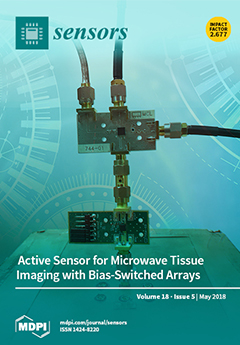Open AccessArticle
Efficient Convex Optimization for Energy-Based Acoustic Sensor Self-Localization and Source Localization in Sensor Networks
by
Yongsheng Yan 1,*, Haiyan Wang 2,3, Xiaohong Shen 2,3, Bing Leng 3 and Shuangquan Li 4
1
Centre for Infocomm Technology (INFINITUS), School of Electrical and Electronic Engineering, Nanyang Technological University, 50 Nanyang Avenue, Singapore 639798 , Singapore
2
Key Laboratory of Ocean Acoustics and Sensing, Ministry of Industry and Information Technology, Xi’an 710072, China
3
School of Marine Science and Technology, Northwestern Polytechnical University, Xi’an 710072, China
4
Xi’an Institute of Applied Optics, Xi’an 710065, China
Cited by 90 | Viewed by 4022
Abstract
The energy reading has been an efficient and attractive measure for collaborative acoustic source localization in practical application due to its cost saving in both energy and computation capability. The maximum likelihood problems by fusing received acoustic energy readings transmitted from local sensors
[...] Read more.
The energy reading has been an efficient and attractive measure for collaborative acoustic source localization in practical application due to its cost saving in both energy and computation capability. The maximum likelihood problems by fusing received acoustic energy readings transmitted from local sensors are derived. Aiming to efficiently solve the nonconvex objective of the optimization problem, we present an approximate estimator of the original problem. Then, a direct norm relaxation and semidefinite relaxation, respectively, are utilized to derive the second-order cone programming, semidefinite programming or mixture of them for both cases of sensor self-location and source localization. Furthermore, by taking the colored energy reading noise into account, several minimax optimization problems are formulated, which are also relaxed via the direct norm relaxation and semidefinite relaxation respectively into convex optimization problems. Performance comparison with the existing acoustic energy-based source localization methods is given, where the results show the validity of our proposed methods.
Full article
►▼
Show Figures






